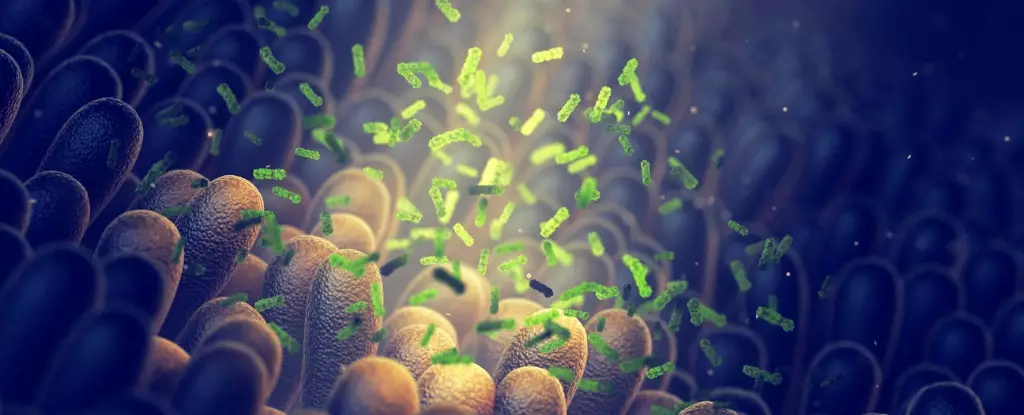In the ongoing battle against antibiotic resistance, scientists have found themselves outpaced by rapidly evolving bacteria. This has led them to explore new avenues for developing novel drugs, with the human gut microbiome emerging as a promising source of inspiration. By analyzing the microbiomes of 1,773 individuals, researchers in the US have identified a diverse range of proteins with potential antibiotic properties, signaling a new frontier in drug discovery.
Bioengineer César de la Fuente from the University of Pennsylvania emphasizes the importance of viewing biology as an information source. By applying algorithms to decipher the genetic code of microbial proteins, researchers can expedite the process of antibiotic discovery. This innovative approach has already yielded promising results, with 70.5 percent of the synthesized proteins demonstrating antimicrobial activity in laboratory tests.
Among the most potent proteins identified is prevotellin-2, which exhibits comparable efficacy to polymyxin B – a commonly used antibiotic against multi-drug resistant infections. This discovery underscores the potential of tapping into the human microbiome for novel classes of antimicrobial peptides. Physician-scientist Ami Bhatt from Stanford University highlights the significance of these findings for future antibiotic development, offering hope for patients facing drug-resistant infections.
Redefining Antimicrobial Composition
One of the key revelations from this research is the unconventional composition of the identified proteins, diverging from traditional antimicrobial molecules. Bioengineer Marcelo Torres notes that these novel compounds represent a unique class with distinctive properties, expanding the repertoire of antimicrobial agents. This unconventional approach opens up exciting possibilities for developing next-generation antibiotics with enhanced efficacy.
The conventional methods of antibiotic development from environmental sources are time-consuming and labor-intensive. By leveraging the inherent antimicrobial potential of the gut microbiome, researchers like de la Fuente aim to streamline the process of identifying and activating novel antibiotics. This need for speed is driven by the escalating threat of antibiotic resistance, which has dire consequences for public health and underscores the urgency of finding innovative solutions.
The Evolutionary Arms Race Within Our Bodies
The human gut serves as a battleground where diverse microbial communities constantly compete and coexist. This dynamic environment fosters the evolution of robust defense mechanisms, offering a rich source of antimicrobial agents. De la Fuente highlights the harsh conditions within the gut, where bacteria must adapt and evolve to survive, potentially yielding valuable insights for combating infectious diseases.
The human gut microbiome represents a reservoir of untapped potential in the fight against antibiotic resistance. By harnessing the evolutionary forces at play within our bodies, researchers can uncover novel antimicrobial peptides with the capacity to overcome drug-resistant pathogens. This symbiotic relationship between humans and their gut microbes holds the key to developing effective strategies for combating infectious diseases in an era of escalating antibiotic resistance.



Leave a Reply